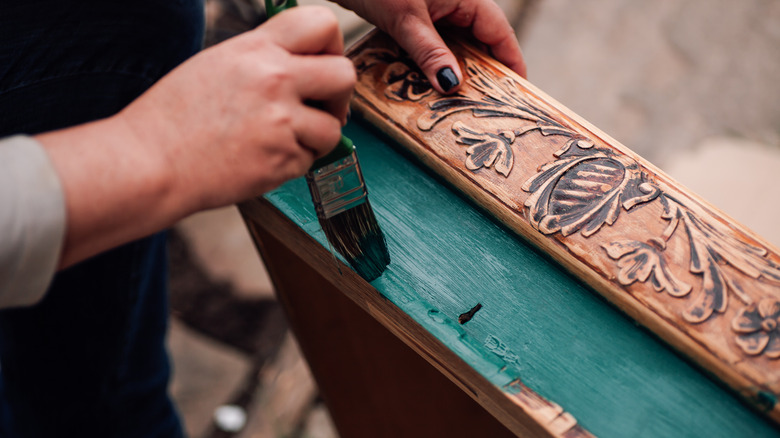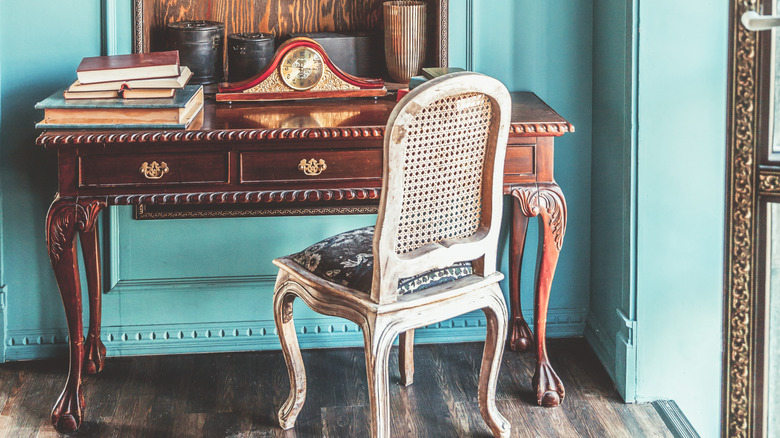Why A Designer Encourages You To Put The Paint Away When It Comes To Antiques
Your taste in interior décor is completely your own. It's subjective, and some design rules were meant to be broken. If your fantasy is to live inside a comic book with bright yellow furniture and bubblegum pink walls, then you do you. Many DIYers prefer to experiment with how they renovate an antique or vintage piece of furniture rather than leave its original finish intact. It can be a divisive subject, but Lexington, Kentucky, interior designer Hannah Maple reminds us that keeping antiques in their original, unpainted state retains the character of the piece and keeps your home's décor unique. She says (via Southern Living), "I tend to be a purist when it comes to preserving historical integrity."
So, what is an antique, anyway? The general consensus is that furniture that's 100 years or older is classified as an antique. A vintage item, on the other hand, might be about 40 years old, give or take. One way to tell if your antiques are worth anything is to get your furniture appraised by a professional. They'll look at the original build quality, the finish, current condition, and age to tell you what it's worth. If the item is in good condition, painting over that beautiful craftsmanship might cause it to lose 50% or more of its value. That alone is a strong reason many designers advise against painting, but antiques represent so much more than a resale price.
Keep antiques authentic
Antique furniture was built when the mindset was quite different than today. There were no thoughts of planned or even accidental obsolescence; for example, something like an oversized furniture trend that looks cool now but may look dated in a few seasons didn't exist back then. Instead, pieces were made from sometimes common, sometimes precious woods, and they were solid and fashioned with quality metal hardware. Chairs, tables, sofas, and secretaries were built to last a long time and were meant to be treasured inheritance items that stayed in the family. In earlier eras, society didn't discard things as easily as we do.
Maple says, "Let [a valuable antique] shine in all of its authentic glory ... those original, rare details and incredible craftsmanship should never be disguised by paint." Painting an older piece that's still in great condition is a bit like saying the piece only has value to you and wouldn't matter to anyone else. If, instead of painting, you're wondering if refinishing would disrupt its value, it's best to check with a professional first.

